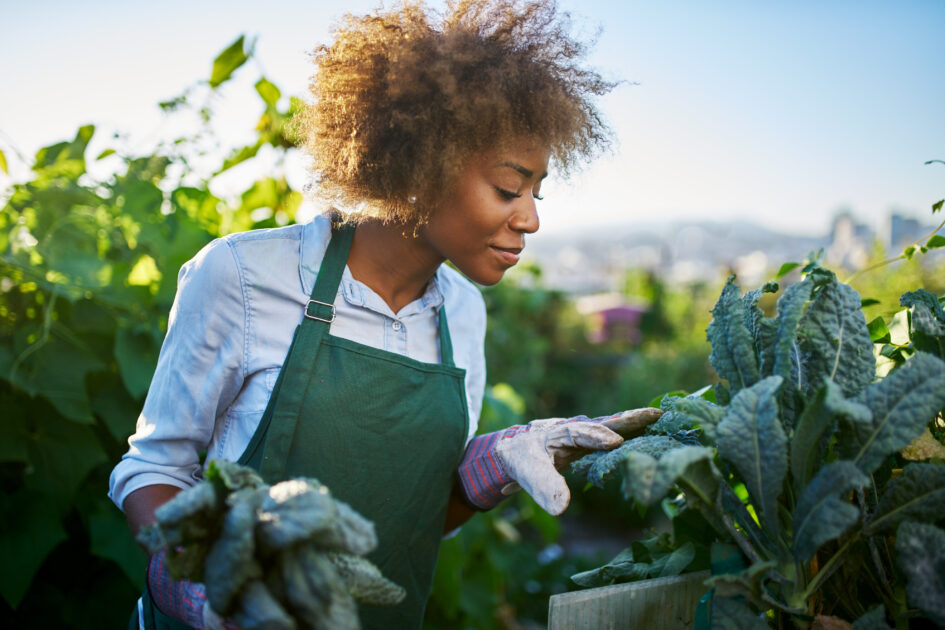Preparing for the first sprout of spring may help shield us from those pesky winter blues that might be heightened during the current pandemic. Much like the perks of travel planning for our mental wellbeing (mentioned in our December newsletter), garden planning can encourage a futuristic mindset that can help release some of the layered stress we are all undoubtedly experiencing.
In addition to the enjoyment we might get from planning for our springtime spread (while the winter winds howl at our window), gardening itself provides a bounty of benefits for both our mental and physical wellbeing:
- It might stave off symptoms of depression and anxiety and can improve stress management.
- It also helps us cultivate a growth mindset.
- Being in nature helps us live seasonally (which has a laundry list of its own benefits).
- Not to mention, the healthy eating bonus – growing your own produce organically without the sometimes-costly price tag!
How to Prep for Your Garden Now
You can dig your hands in some dirt (even if only metaphorically at the moment) to prep for your upcoming garden:
Start plants indoors: Plants like tomatoes and peppers of all varieties do best with a long growing season, so it’s recommended to get a jump on cultivating them indoors if you aren’t located in a warm climate year-round. Bonus: Seeds are often discounted through the month of February! Stock up now and save as much as 50%!
Design or redesign your garden(s): A lot of the fun in garden prep comes from visualizing the layout until you can sink your hands in the soil and smell the sweet scent of fresh blossoms. Even if you planted a luscious garden last year, you can still dream up changes for this year’s layout – regular plant rotation is valuable for optimizing soil nutrients seasons over. You might even check out free online garden planners, too (like almanac.com).
Get to know the needs of a new plant or veggie you want to grow this year: Each plant has a host of requirements for thriving in your garden. Use this time indoors to investigate and brush up on those details, which can make all the difference in the success of your garden. Check out free resources (like online gardening encyclopedias) or peruse gardening literature (personal favorite shoutout: “Rodale’s Basic Organic Gardening”).
The Number-One Gardening Tip for All Gardeners, Not Just Novices
Go easy on yourself when things go awry: There will be insects, mystery plant diseases and gardening flops to learn from each season. These are learning opportunities and not failures. Even if you’ve been gardening for decades, remind yourself that the art of gardening itself provides a landscape flourishing with opportunity for personal growth.
Sources:
“10 Mental-Health Benefits of Gardening,” Seth J. Gillihan, psychologytoday.com, June 19, 2019.
“10 Helpful Gardening Tips That Actually Helped This Former Plant Killer,” Colleen Stinchcombe, self.com, June 16, 2020.

